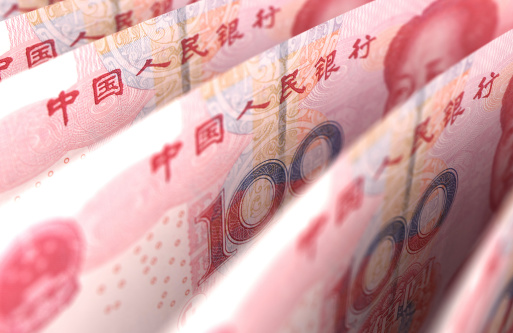Banking, finance, and taxes
In Criticizing China for Devaluation, Jack Lew Reveals His Own Confusion
Published:
Last Updated:
Thursday morning on CNBC, Treasury Secretary Jack Lew had some strong words for China, though lacking much content. In an apparent criticism of China’s devaluation of the yuan that immediately preceded a correction in global equities, Lew said that the United States would “hold [China] accountable” for its currency manipulation.
Lew seems a bit confused on the matter though, and betrayed this confusion when he further said of China, “they need to be willing to let market forces drive the value up, not just drive it down.” But did the Chinese authorities really manipulate the value of the yuan down when they “devalued” it, so to speak?
The answer is no. What China actually did was adjust its artificial peg to the dollar to a slightly different range. A peg is something that is certainly not “market forces,” since it is maintained by central bank policy, in this case the People’s Bank of China (PBOC). The yuan is traded in two different forms. One is onshore yuan (CNY) traded in China and directly controlled by the PBOC. The other is offshore yuan (CNH), traded primarily in Hong Kong, that is not directly controlled by the PBOC.
The peg that all this fuss is about essentially means that if market forces drive CNH higher or lower than an arbitrary rate for CNY decided on by Chinese central bankers, the PBOC will intervene and buy or sell CNY to maintain exchange rates of both CNY and CNH to within the peg’s desired range.
ALSO READ: 7 Countries Near Bankruptcy
When the PBOC shifted its CNY peg several weeks ago, it did so precisely because the value of offshore yuan was sinking at the time due to free market forces. So instead of trying to manipulate offshore yuan back up by standing firm on its peg, the PBOC decided this time to just give in to market forces to a small extent and adjust the onshore yuan peg to within the new free market range for offshore yuan, and even out the exchange rates of the two forms of yuan that way.
In a sentence, the free market was pushing the value of offshore yuan down, and the PBOC acquiesced to this instead of fighting it. So what is Lew talking about when he says “they need to let market forces drive the value up, not just drive it down”? Lew is implying that he would have rather seen the peg maintained artificially than bow to free market forces. That sentence is a contradiction in terms.
The answer is probably that he is just towing a political line for a sound bite that the Obama administration wants, but it makes little economic sense. Further, why should the administration care if China loosens its peg to line up the two sides of its currency? A weaker yuan means cheaper Chinese products for all Americans, raising the standard of living for the average U.S. consumer. Sure, it damages exports somewhat, but everyone else who buys imported Chinese products, benefits.
In the end, the true hypocrisy of Lew’s recent statements is embedded in U.S. policy itself. All central banks can ever do, whether they are the Federal Reserve or the PBOC, is buy (tighten or strengthen) or sell (loosen or weaken) their own currency to manipulate their respective economies. The Federal Reserve does this just as much as the PBOC does. The fact that the PBOC calls it a “peg” and the Fed calls it “QE” is only an accident of history and nomenclature.
Neither the United States nor China releases their currencies to the full brunt of free market forces. But China’s adjustment of its peg was actually one small step in a free market direction.
ALSO READ: 5 Stocks Cheering the Puerto Rico Debt Renegotiation Settlement
The last few years made people forget how much banks and CD’s can pay. Meanwhile, interest rates have spiked and many can afford to pay you much more, but most are keeping yields low and hoping you won’t notice.
But there is good news. To win qualified customers, some accounts are paying almost 10x the national average! That’s an incredible way to keep your money safe and earn more at the same time. Our top pick for high yield savings accounts includes other benefits as well. You can earn up to 3.80% with a Checking & Savings Account today Sign up and get up to $300 with direct deposit. No account fees. FDIC Insured.
Click here to see how much more you could be earning on your savings today. It takes just a few minutes to open an account to make your money work for you.
Thank you for reading! Have some feedback for us?
Contact the 24/7 Wall St. editorial team.